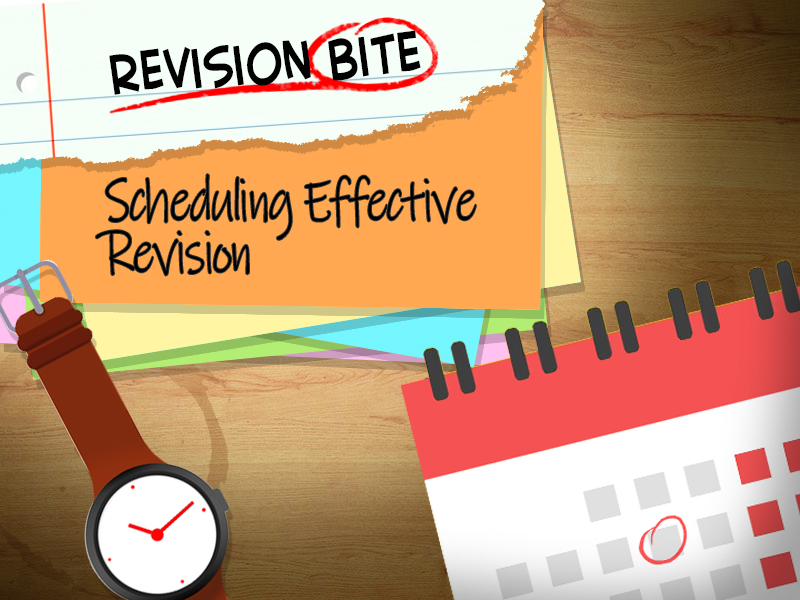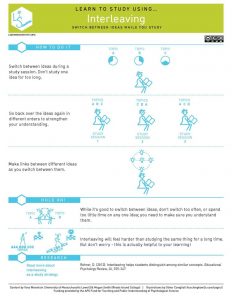Preparing a study timetable at the start of your revision process has become something of a cliché, with many people not bothering at all and others producing unrealistic or unhelpful schedules. In this Bite we look at two powerful concepts related to how you organise your revision- ‘Spaced Practice’ and ‘Interleaving’. We’ll also point you towards further advice on some of the practicalities of creating an effective revision timetable.

Should I use a Revision Timetable?
Revision timetables – you either love them or you hate them. If you’re already a fan, that’s great, but there are always new tips we can learn to make our plans even more effective. If you fall more into the ‘hate them’ camp, then our task is to persuade you that at the very least you need to be giving some thought to how you structure your revision. It’s not simply a case of ensuring you cover all the necessary material – as we’ll explain below, there’s growing evidence that the way you structure your revision can actually radically affect how effective that revision will turn out to be.
Having some kind of plan:
- Puts you in control of the revision process;
- Ensures that you cover all the necessary material before the exam(s);
- Allows you to weight the amount of study you do on individual topics according to need;
- Helps you to incorporate proven effective approaches into your revision;
- Allows you to accommodate and cope with emergencies, unexpected delays and changes of plan.
You can find all sorts of practical advice on organising your revision in our sister resource, Exam Bites. Here in Revision Bites we’d like to focus on two important concepts that make planning your revision an indispensable activity: Spaced Practice and Interleaving

The importance of ‘Spaced Practice’
Spaced Practice is one of those concepts that sounds obvious but that in practice is sometimes ignored. Research has shown that you gain more benefit from studying a topic if you break that study over a period of time rather than cramming it all in to the same amount of time in one go. You can read more about the basic concept here. One advantage of this approach is that it lends itself particularly well to Recall or Retrieval activities – read about why these activities are so beneficial in ‘Revision Bite – Building Recall’. So when you’re planning your revision, you should aim to allow for several shorter sessions on a particular topic, spread over a number of days or weeks (the longer the better), rather than one long session where you ‘blitz’ that topic.
Interleaving
| Interleaving goes hand in hand with the idea of spaced practice. It simply means switching topics or subjects you are studying so that you don’t spend too long on any one thing in a single sitting. Research suggests that this kind of interleaving approach is beneficial when we study and leads to better and deeper learning than trying to take in topics in big chunks. Having some sort of revision timetable will allow you to reap the benefits of this approach to studying. | Link to PDF from THE LEARNING SCIENTISTS |
Further advice:
For advice on some of the practicalities of getting organised, avoiding procrastination and timetabling your revision, go to Exam Bites 1
Read what The Learning Scientists have to say about Spaced Practice and Interleaving
Check out this video produced by a final year medical student where he discusses Spaced Practice and offers some practical tips on how to incorporate them into your routine.
